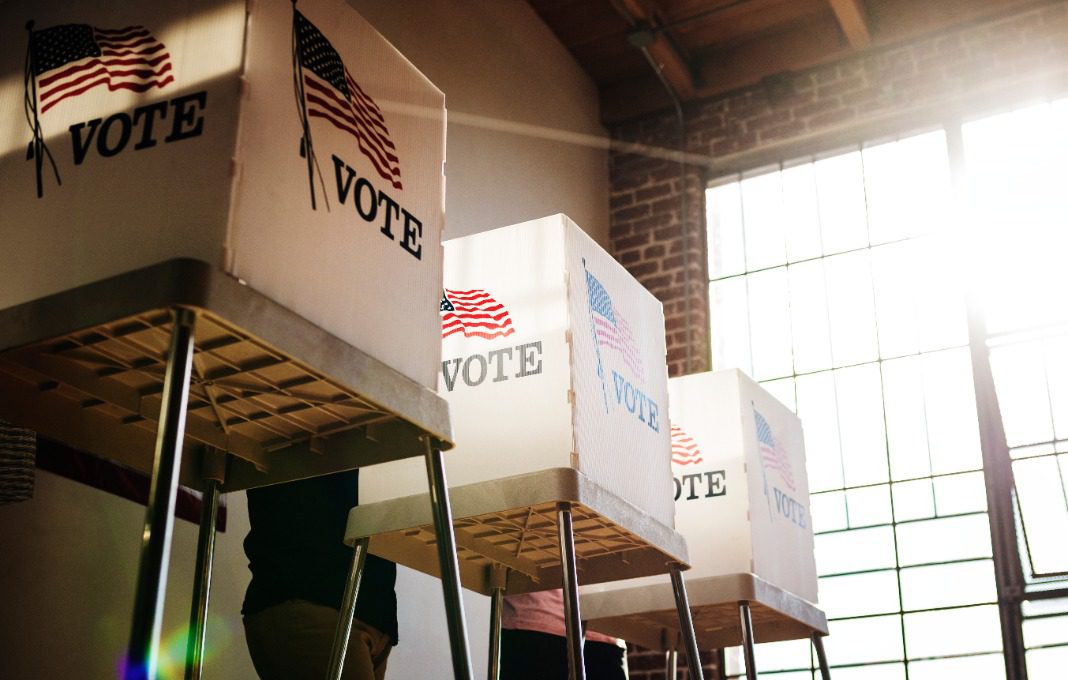The 2024 election will ripple through every workplace, bringing emotional and cultural challenges that no leader can afford to ignore. According to PWC’s 2024 Election Pulse Survey, 76 percent of executives anticipate a divided government after the election. No matter the outcome, emotions will spill into meetings, emails and conversations. Employees can’t leave their hopes, fears or frustrations at the door—and neither can leaders. This election will test leaders’ own well-being and resilience just as much as it will challenge their teams.
Leaders who ignore this moment risk seeing engagement falter and tension rise. But with empathy, purpose, civil discourse and trust, leaders can not only survive this moment—they can future-proof their teams.
Here’s how to election-proof your leadership and position your team for success:
1. Model Civil Discourse – Not Avoidance
Avoiding contentious conversations might feel like the safe route, but it’s not a sustainable strategy. According to SHRM’s 2024 Civility Index, U.S. workers scored 42.3 out of 100, reflecting a pervasive experience of incivility across workplaces and daily life. Nearly 66 percent of workers report that incivility undermines morale, and almost 40 percent of daily acts of incivility occur within the workplace. These behaviors erode collaboration, diminish trust and harm productivity.
Leaders can’t eliminate disagreements, but they can model civil discourse by engaging thoughtfully with different viewpoints. Ask open-ended questions like, “What am I missing?” to keep dialogue constructive and foster psychological safety. When leaders engage without defensiveness, disagreements spark growth, not division.
Civil discourse isn’t just for difficult conversations—it’s a foundation for high-performing teams that can navigate stress, stay adaptable and remain focused on what matters most.
2. Meet People Where They Are: Provide Psychological Safety
Employees are undoubtedly navigating personal emotions tied to the election, and leadership today requires contextual competence—the ability to meet people where they are, not where you expect them to be. That means anticipating distractions around Election Day and offering flexibility so employees can care for themselves without added pressure.
Most importantly, leaders must make work a safe space for employees. They need to know it’s safe to voice concerns, ask questions and share what they need—without fear of judgment or repercussion. Fear, division and uncertainty can erode trust within teams, making it harder for people to feel safe. Leaders play a critical role in rebuilding this trust by fostering open dialogue and creating spaces for emotional expression.
Check-ins are essential for building psychological safety. Ask team members simple, meaningful questions like: “How are you?” and “What does support look like for you right now?” These moments aren’t about solving every issue—they’re about listening to understand. When employees feel safe and supported, they’re more likely to stay engaged, motivated and productive, even during difficult times.
3. Anchor Teams in Purpose When Everything Else Shifts
When external events feel chaotic, purpose becomes an anchor that keeps teams focused, despite overwhelming circumstances. Show employees how their individual roles connect to the company’s larger mission. This clarity not only boosts motivation but also enables employees to navigate distractions and stay engaged with meaningful outcomes.
McKinsey’s research conducted during the pandemic found that employees who say they are “living their purpose” at work report five times higher levels of well-being compared to those who are not. Additionally, those who feel connected to their purpose are four times more likely to be highly engaged at work. Purpose is not just motivational; it’s a guidepost that helps teams stay steady and resilient through turbulent times.
4. Trust Your People, Especially When the Ground Shifts
Disruption tempts leaders to tighten control—but the best ones know that agility comes from trust and autonomy. Research from the Harvard Business Review shows that employees at high-trust companies report 50 percent higher productivity, 76 percent more engagement, 40 percent less burnout, and 74 percent less stress.
Trust isn’t passive—it’s a deliberate act of leadership. Teams that feel trusted respond faster, adapt more effectively and innovate under pressure. In contrast, micromanagement stifles creativity and morale. Leaders who empower their people unlock the energy and focus needed to thrive in uncertainty.
Trust delivers measurable results: fewer sick days, higher life satisfaction and more engaged, productive teams. In volatile times, trust isn’t a risk—it’s an investment that pays off in resilience and results.
A Turning Point for Leadership
The election isn’t just an event—it’s a test of leadership. How leaders show up now will determine whether their teams trust them to navigate future uncertainties. Meeting people where they are, anchoring them in purpose, modeling civil discourse and trusting them with autonomy aren’t just strategies, they are imperatives for modern leadership.
This moment demands more than survival—it demands transformation. Leaders who embrace empathy, trust and purpose won’t just weather this election, they’ll build cultures of excellence ready to thrive through the disruption that defines today’s world.







